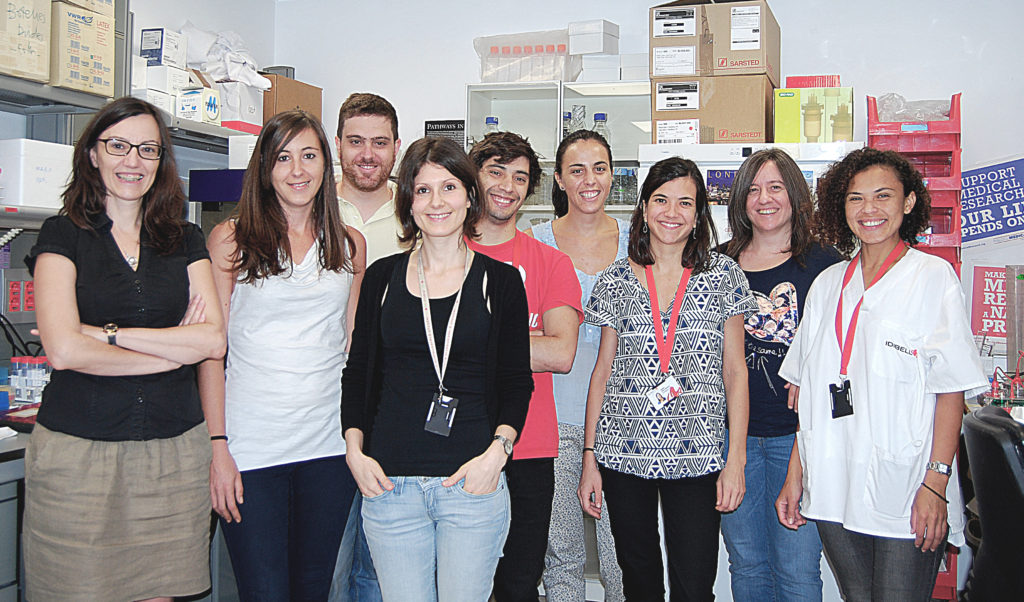Researchers at the Bellvitge Biomedical Research Institute (IDIBELL), led by Dr. Montse Sanchez-Cespedes, have demonstrated in in vitro and in vivo studies the effectiveness of a new drug combination in the treatment of a subtype of lung cancer. The study, published by the journal Oncogene, follows a promising lead for a disease for which there is no available treatment at the moment.
“For the first time, we have found a number of drugs which, in combination, manage to slow tumor growth in this type of cancer”, explains Dr. Sanchez-Cespedes, lead author of the study.
In previous works, the research group demonstrated, using different cell lines, that treatment with retinoids and corticoids inhibits the growth and multiplication of cells in a type of lung cancer associated with a genetic alteration, the amplification of MYC gene family.
In the current study, it is shown that when retinoids and corticosteroids are combined with azacytidine and SAHA, two drugs that act at the epigenetic level, a synergistic effect is achieved so that cells with this genetic alteration are killed.
Lung cancer is the most common type of cancer in the world, and it is usually classified into two major types, small-cell lung cancer, and non-small-cell lung cancer. “MYC amplification occurs in 30% of small-cell lung cancer cases”, says Dr. Sanchez-Cespedes, “which in turn account for 20% of the total cases of lung cancer. This is a considerable number of patients for whom no treatment is available today. ”
The study has been carried out in cancer cell lines and in mouse models, and therefore there is still a long way to go, but the results obtained by IDIBELL’s research team give some hope.
The published paper also describes the genetic and epigenetic profiling of tumor cells treated with the new drug combination. “These tumor cells, are generally poorly differentiated compared to healthy ones, but once this treatment is administered, we can see an increase in cellular differentiation markers, which indicates that the treatment promotes transcriptional changes compatible with this increase” states the IDIBELL researcher.
20/09/2016
Scientists prove the effectiveness of a new combination of drugs in a type of incurable lung cancer

RELATED CONTENT
Share on:
Tags: ,
